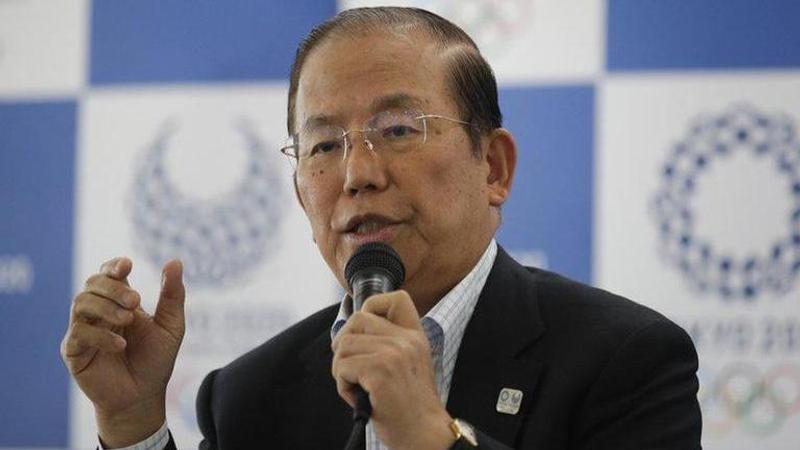Published 13:40 IST, November 12th 2020
Tokyo Olympics may allow foreign fans; there will be rules
Next year's postponed Tokyo Olympics — if they happen — will be like no other, particularly for non-Japanese fans if they are allowed to enter in the middle of the COVID-19 pandemic.

Next year's postponed Tokyo Olympics — if they happen — will be like no other, particularly for non-Japanese fans if they are allowed to enter in the middle of the COVID-19 pandemic.
Tokyo organizing committee CEO Toshiro Muto, after a meeting Thursday about infection countermeasures, confirmed for the first time that a limited number of non-Japanese fans may be allowed to attend.
But there will be some stringent guidelines, rule books to follow, and health apps to track fans and monitor the spread of the infection.
“By next spring we will be coming up with measures for all spectators including the non-Japan residents,"Muto said, speaking in Japanese in an on-line briefing. “For the non-Japanese, we need to be sure we secure a spectating opportunity for them as well.”
Organizers and the International Olympic Committee have given themselves at least five more months — into the northern hemisphere spring — to start finalizing how they will pull off the Olympics for 11,000 athletes and tens of thousands of officials, judges, sponsors, media and broadcasters.
It was in early spring this year that the Games were postponed, unable to see a way forward and now set to open on July 23, 2021.
“The spectators’ anxiety of not knowing if they can actually go to the games or not is understandable, "Muto said. “We would like to be considerate of the spectators as much as possible while we take preventive measures at the same time to be able to accommodate as many spectators as possible."
IOC President Thomas Bach confirmed on Wednesday in a briefing in Switzerland that he will be in Tokyo next week, his first visit since the Olympics were postponed. Bach gave a firm “no” response when asked if a contingency for canceling the Olympics would be discussed in Tokyo.
Bach is expected to meet new Prime Minister Yoshihide Suga, and talk with Tokyo Governor Yuriko Koike, Tokyo organizing committee President Yoshiro Mori, and others linked to the Olympics.
Muto was asked if foreigners visiting Japan would follow the rules. Japan has been largely successful controlling with virus with just over 1,800 deaths reported.
“I think it's difficult to control their movement and behavior,” a Japanese reporter said, speaking in Japanese.
Muto acknowledged the problem. Nearly everyone in Japan wears a mask — nearly everywhere.
“After the entry into Japan, we can’t follow the spectators and general consumers like we do athletes, so what should be we do?” Muto said. “We need to make sure the screening in sufficient before they enter into the country. That’s a keep point.”
He said organizers would come up with ways to track in coming fans, suggesting a call center and other measures. He also pointed that the routes between underground stations and a nearby venues would be monitored with rules to follow.
“For spectators, once they enter into Japan there is a limit what we can do," Muto said.
Muto said there was no decision yet on the number of fans allowed into venues. Several baseball stadiums in Japan have experimented with fan capacity at 80%.
“Whether we are going to have full capacity or not, the decision has not been made yet because various experiments are taking place,” Muto said.
He did caution they might be quiet venues.
“There’s a possibility that we may ask the spectators to refrain from shouting and speaking in a loud voice. But we haven't reached a conclusion,” he said.
Muto said he expected the organizing committee's latest budget to be out before the end of the year. A big hole could develop if ticket sales are reduced. Tickets provide about $800 million for organizers, the third largest source of revenue.
Tokyo says it is officially spending $12.6 billion to prepare for the Olympics, though a government audit last year said it was twice that much. All but $5.6 billion is public money.
In addition, the one-year delay is estimated in Japan to cost an added $2 billion to $3 billion. The IOC has said it would chip in about $650 to defer the costs, leaving the rest to Japanese taxpayers. There could also be added costs from vaccines, testing, and added health care that will be needed.
(Image credit: AP)
Updated 13:40 IST, November 12th 2020




